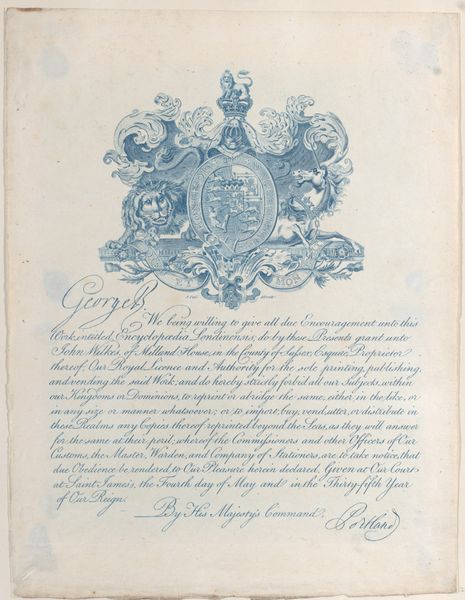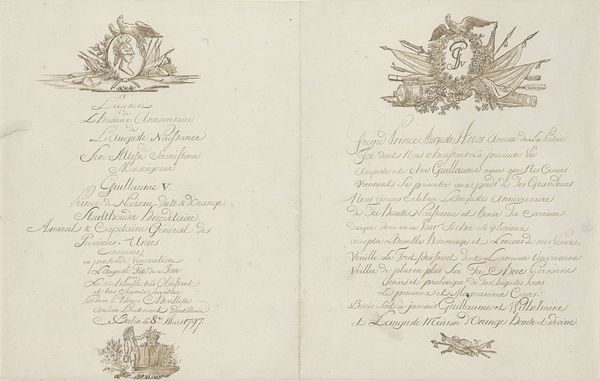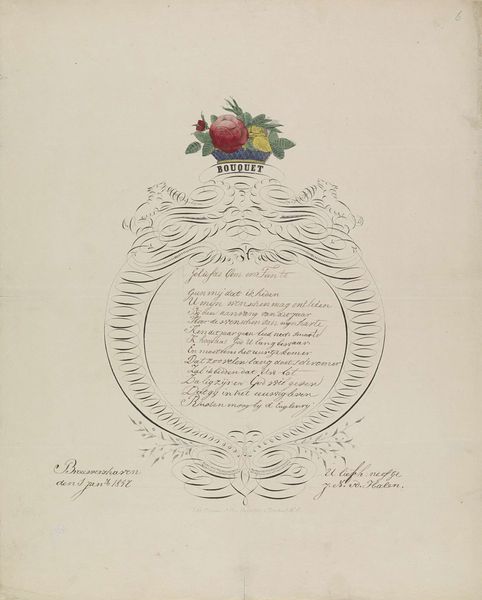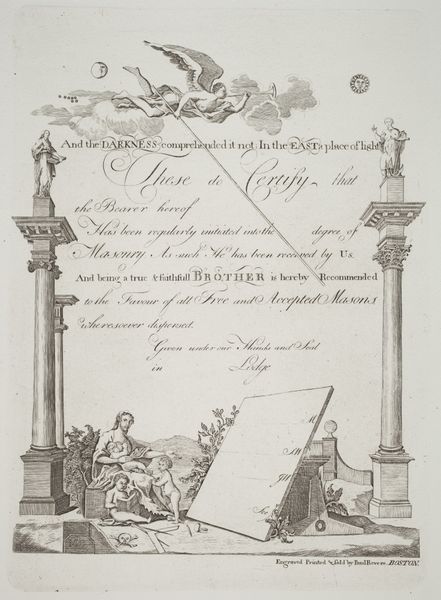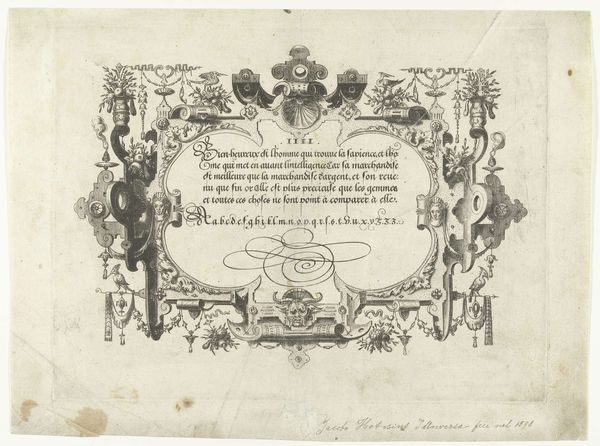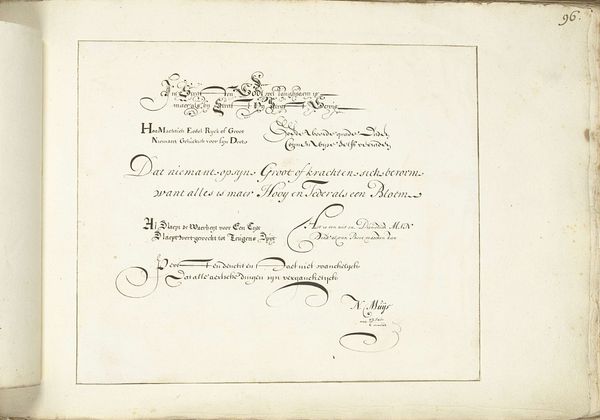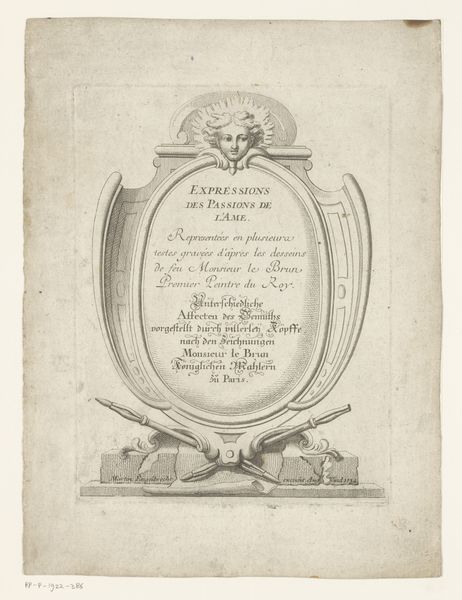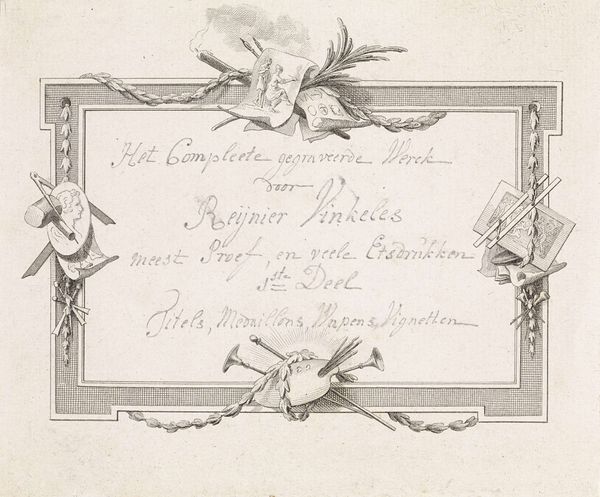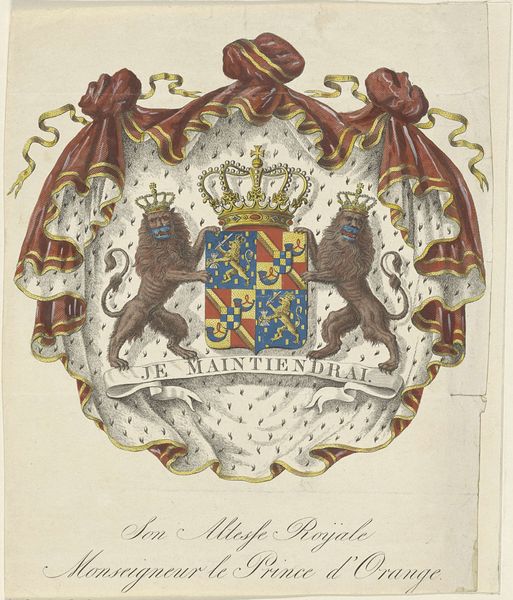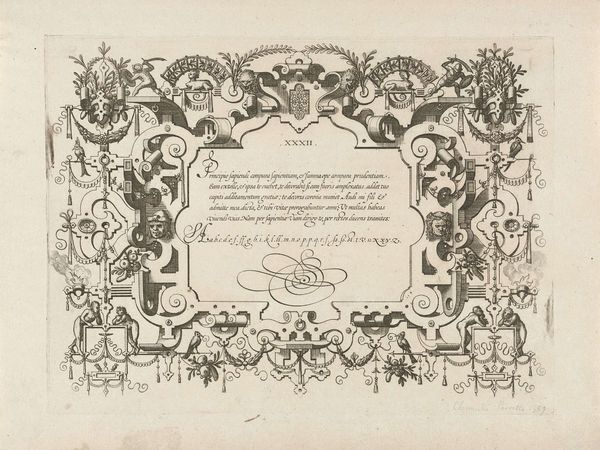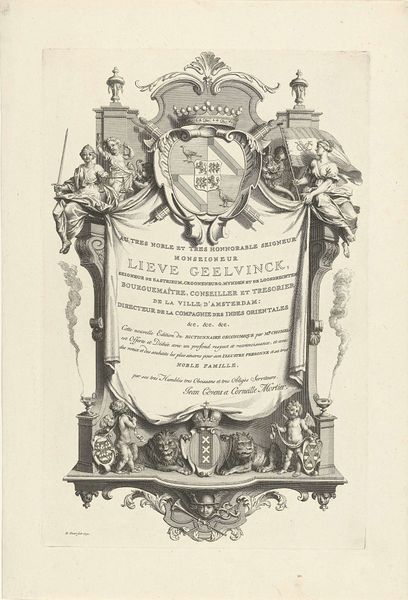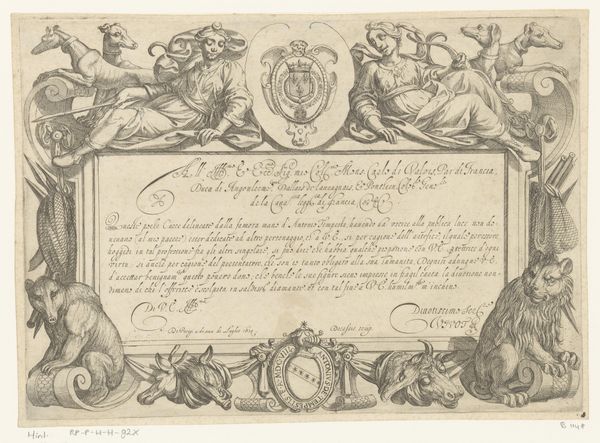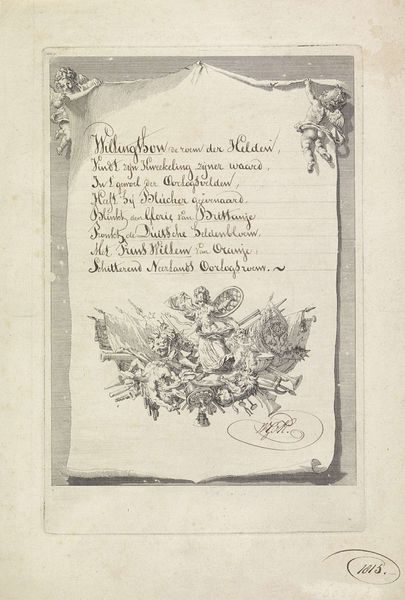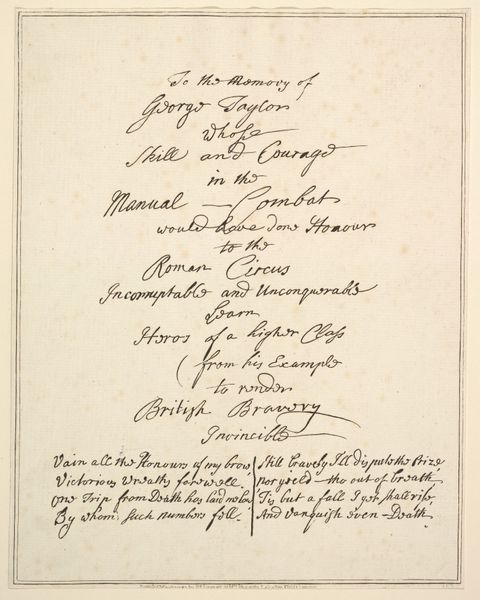
Biljet van het bezoek van de prinses weduwe van Oranje Nassau aan een lithografisch atelier te 's-Gravenhage, 22 februari 1819 1819
0:00
0:00
anonymous
Rijksmuseum
drawing, print, etching, ink, pen, engraving
#
drawing
#
comic strip sketch
# print
#
etching
#
hand drawn type
#
personal sketchbook
#
ink
#
idea generation sketch
#
sketchwork
#
ink drawing experimentation
#
pen-ink sketch
#
pen work
#
sketchbook drawing
#
pen
#
sketchbook art
#
engraving
#
calligraphy
Dimensions: height 256 mm, width 209 mm
Copyright: Rijks Museum: Open Domain
Curator: This delicate engraving commemorates a royal visit. It's entitled "Biljet van het bezoek van de prinses weduwe van Oranje Nassau aan een lithografisch atelier te 's-Gravenhage, 22 februari 1819" dating from 1819 and resides in the Rijksmuseum. Editor: The density of line work immediately strikes me; it's so incredibly detailed, even within such a small composition. I sense a high degree of precision and controlled movement here, like the finest script. Curator: Indeed, calligraphy was held in very high esteem, functioning as an aesthetic performance as well as communication. Consider the symbolic weight, too. The lion, the heraldic shields—these motifs establish status and lineage. They visually reinforce the established social hierarchy of the time. Editor: I am struck by the combination of free-flowing cursive with such rigid heraldic devices, as if striving to create an effect that reflects the constraints put in place by nobility while seeking an organic balance. The placement seems very carefully considered. Note how the weight is at the top and the forms lighten gradually downward. Curator: The visit itself, the "auguste Présence", was a way for royalty to publicly endorse and support artistic enterprise. This gesture would carry significant weight in solidifying the lithographic studio’s reputation and attracting future patronage. It demonstrates the interconnectedness of power, art, and the developing technologies of printmaking. Editor: Yes, but isn't there something undeniably decorative, even mannered, about it all? The flowing lines of the script are beautiful, even considered almost separate from the message they convey. Curator: But those lines were more than just aesthetic; they conveyed respect, gratitude, and cemented a patron-client relationship vital to the artist's survival. This image serves as both record and propaganda—art legitimizing power and power, in turn, supporting art. Editor: I see that now. Looking at it as an object mediating power changes how I view the forms themselves; it suddenly transforms the gestures of calligraphy and places them squarely at the junction of technology, power and representation. Curator: Absolutely. A seemingly simple invitation, a "biljet," unfolds to reveal intricate networks of cultural and economic exchange. Editor: Yes. That’s altered my appreciation of this little artwork significantly. Thanks.
Comments
No comments
Be the first to comment and join the conversation on the ultimate creative platform.
